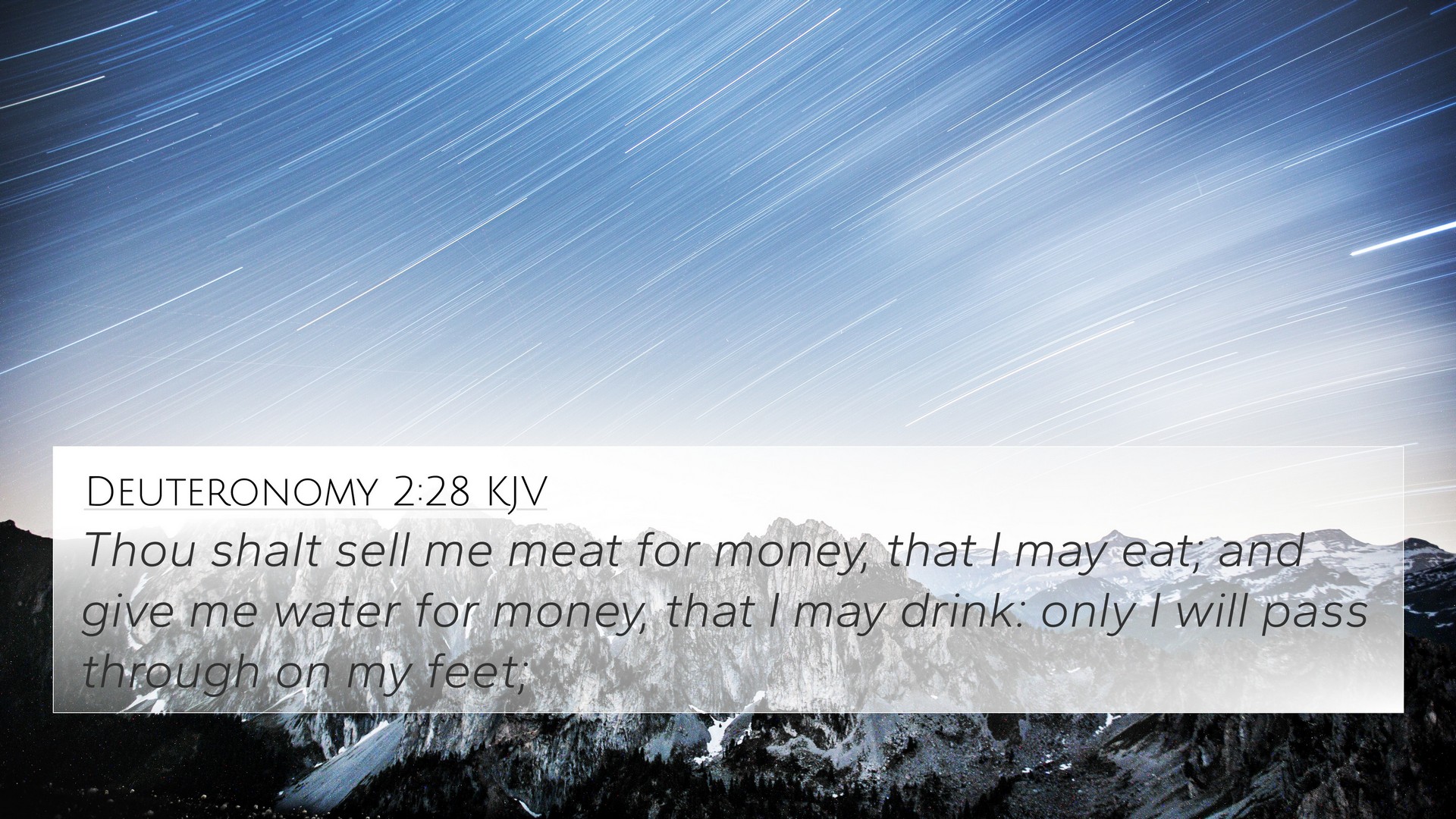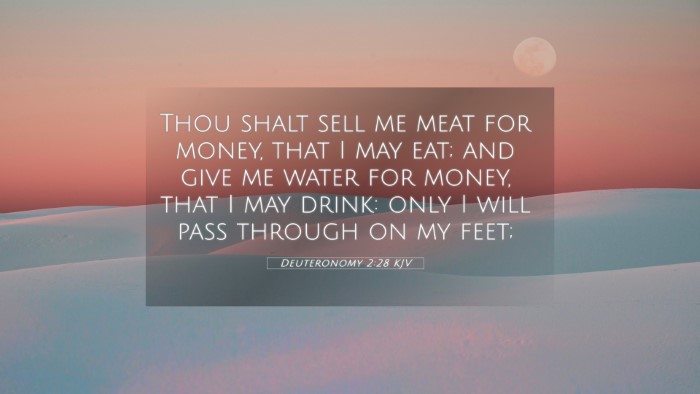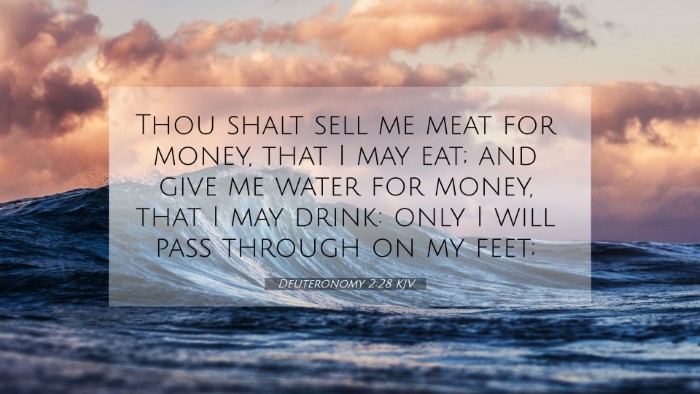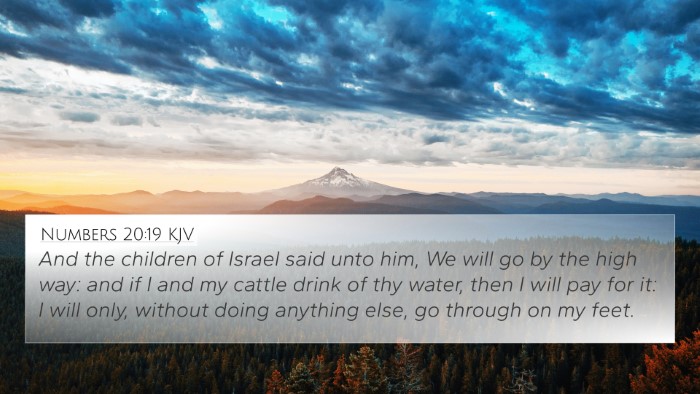Understanding Deuteronomy 2:28
Verse: "Thou shalt sell me meat for money, that I may eat; and give me water for money, that I may drink: only I will pass through on my feet." - Deuteronomy 2:28
Overview
This verse captures a moment during the Israelites' journey as they sought passage through the land of Edom. The request for food and water reflects their need and the manner in which they approached hostile territories. In this summary, we will explore insights from various public domain commentaries, drawing connections and thematic understandings from this scriptural passage.
Commentary Insights
- Matthew Henry:
Henry emphasizes the necessity of humility in obtaining provisions even from those who may oppose them. The Israelites requested these essentials politely, highlighting their willingness to compensate for what they sought. This interaction becomes a form of respectful negotiation, demonstrating how even in times of adversity, maintaining a posture of courtesy can yield beneficial results.
- Albert Barnes:
Barnes notes the significance of this request within the broader narrative of Israel's journey to the Promised Land. Edom, being a relative and blood relation, illustrates a crucial moment of interaction between nationalities. The request underscores the importance of diplomatic relations among nations, even those with historical grievances.
- Adam Clarke:
Clarke discusses the practical implications of the request for food and water, which are vital for survival. He points out that the need for sustenance emphasizes the trials faced by the Israelites during their journey and the many obstacles encountered along the way. Clarke regards this passage as indicative of Israel's dependence on God, even when they seek help from neighboring nations.
Thematic Connections
The verse connects thematically to several broader biblical themes, such as:
- Diplomacy and Relations: The interaction with Edom sets a precedent for how God’s people should interact with others, especially adversarial nations.
- Dependence on God: While the Israelites sought sustenance, their ultimate reliance was on God, who provided for them even in the wilderness.
- Politeness in Requests: The verse illustrates how politeness can facilitate favorable outcomes, a theme that resonates with biblical teachings on kindness.
Related Bible Cross References
This verse can be cross-referenced with various scriptures that enhance understanding and connections:
- Numbers 20:14-21: Explores the request for passage through Edom and the resultant rejection.
- Deuteronomy 23:4: Discusses the Edomites and their historical context, emphasizing the familial link.
- Genesis 36:1: Provides background on the descendants of Esau, connecting to Edom.
- 1 Corinthians 10:4: Discusses Christ as the spiritual sustenance, linking to Israel's physical needs.
- Exodus 17:3-4: Shows previous instances of Israel's need for water, highlighting a pattern of reliance.
- Philippians 4:19: Affirms that God will supply all needs, resonating with Israel's situation.
- Psalms 78:15-16: Reflects on God's provision for Israel in the wilderness, complementing their journey.
Application and Reflections
This passage serves as a reminder of God's provision in our lives and the importance of respect and courtesy in our communications, even with those who may not share our beliefs. The necessity for sustenance represents the need for spiritual and physical nourishment, a theme echoed throughout scripture.
Conclusion
Deuteronomy 2:28, while seemingly straightforward, encapsulates profound lessons about humility, the importance of relationships, and dependence on God. By connecting this verse to other scriptural references, we can gain deeper insights into the nature of God's people and the path to the Promised Land.
Keywords for Further Study
Readers looking to explore this theme further may consider the following keyword phrases:
- Bible verse cross-references
- Connections between Bible verses
- Comparative Bible verse analysis
- Scriptural cross-referencing
- Bible concordance



